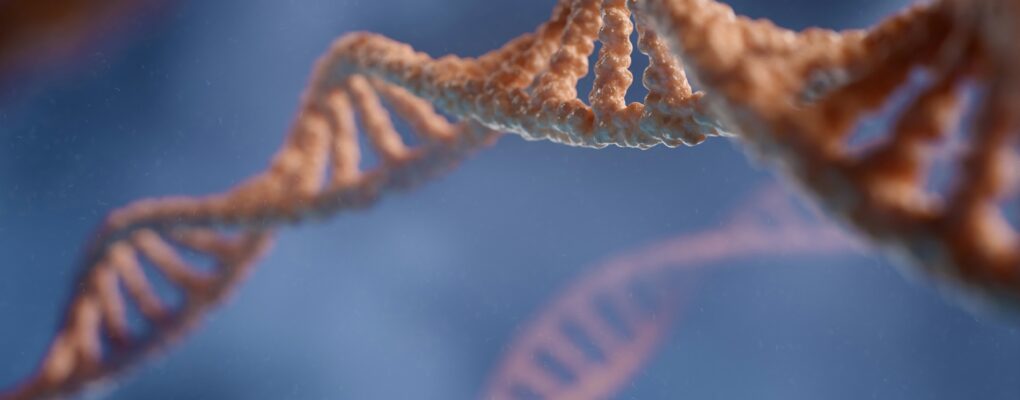
Genetic testing can feel like a brave new world for many people. For donor conceived people (DCP), it takes on an additional layer of meaning. Genetic testing may provide additional insight into your ancestry, connect you with half siblings, and even help gain clarity into your own health and medical history. That being said, genetic testing can also be incredibly complex. There are so many different types of testing out there, each with its own purpose and limitations. How do we put it all into context?
What testing was done for the donor?
The world of genetic testing has grown immensely over the past several decades. Genetic screening for donors is no exception. Donor screening is generally designed to mirror routine preconception screening, and it advances in line with routine screenings.
Donors who participated in a program 10-15 years ago, whether clinic- or cryobank-based, may have received carrier screening for a handful of well-known recessive conditions, such as cystic fibrosis or hemoglobin disorders. Prior to 2010, access to carrier screening was very limited. Donors who participate in a program today typically receive expanded carrier screening, which assesses for the presence of variants in hundreds of different genes known to cause recessive or X-linked genetic diseases.
Many programs also routinely perform a karyotype (chromosome analysis), as large structural differences in chromosomes are a rare cause for infertility and recurrent miscarriage. The specifics of a donor’s testing will vary by program. If you do not have records of what testing was done for the donor, you may wish to ask the fertility care providers or the gamete provider.
I am a parent of a minor DCP. What testing might I want to consider?
Preconception genetic screening—or by extension, donor screening—is an informed decision-making and risk assessment tool. It explores risk for a specific subset of inherited genetic conditions. It will not screen for every possible health condition, and it is not a replacement for other types of genetic testing.
Genetic testing of minor children (under age 18), given that they cannot provide informed consent, is typically targeted to specific health issues in that child and coordinated by their healthcare providers. This may look like a specific diagnostic panel (a curated collection of genes known to be related to the child’s signs/symptoms) or a “deep dive” for small missing/extra pieces of DNA called a microarray. Diagnostic testing aims to uncover the cause of a child’s health condition and pave the way for the most appropriate management or screening.
Diagnostic testing is generally not performed for donor candidates, as it is specific to a particular clinical presentation and is not part of routine preconception screening. Donor candidates are screened for these types of conditions not by genetic testing but by providing their personal and family medical history. Today these screenings often include a thorough physical exam with a doctor and a history collected by a genetic counselor.
Note: The gamete bank wants to hear from you if there are any health concerns for your child and if they have any positive genetic testing. In an upcoming article, we will provide more information about preparing for that conversation.
I am an adult DCP. What testing might I want to consider?
The testing that is most familiar to the majority of DCP is “direct-to-consumer” (DTC) testing, such as 23andMe or AncestryDNA. These tests can be a phenomenal tool to connect with donor conceived siblings and get a better understanding of your ancestry.
DCP considering genetic testing options for their personal healthcare may wish to consider predisposition testing. These panels are designed to investigate heritable increased risks for common conditions in the general population, such as cancer and cardiovascular disease. Positive results on a predisposition panel are meant to be proactive, allowing an individual to alter their personal health management decisions.
Note: Some DTC tests have started to provide predisposition information. While this may feel tempting for ease of use, it is important to keep in mind that DTC platforms were not originally designed for this purpose, and they are not the same as diagnostic testing. The information provided will not be as robust as the results provided by a clinically validated laboratory and can be either incomplete or incorrect. Any positive results should be confirmed with a clinical result. Any results from either type of testing should be shared with your donor conceived siblings and the donor program, if possible.
Where should I go with more questions?
You do not have to be alone in navigating the genetic testing landscape. If you have questions specifically about the testing performed on the donor, you may wish to connect with the gamete bank. Many of the larger programs have a genetics professional available to assist with interpretation of these test results.
If you have questions about genetic testing for yourself or your child, your personal healthcare providers would be a great place to start. You may also want to look into speaking with a clinical genetic counselor. There are genetic counselors who specialize in assisting individuals with limited health history, whether through donor conception, adoption, or other family structures. Many of these providers offer telegenetics services—consulting with clients via phone or video conference. If your personal providers do not have a local referral available, a search tool is available through the National Society of Genetic Counselors.
Authored by The Donor Gamete Genetic Counselors
This article represents a collective effort from a group of genetic counselors dedicated to helping donor conceived people, recipients, and donors. Our goal is to offer transparency regarding the processes involved at gamete banks.
Jennifer Luque, MS, CGC
Katie Hornberger, MS, CGC
Heather Kamen, MS, CGC
Kathryn Lockwood, MS, CGC
Brynn Persky, MS, CGC
Jessica Park, MS, CGC
